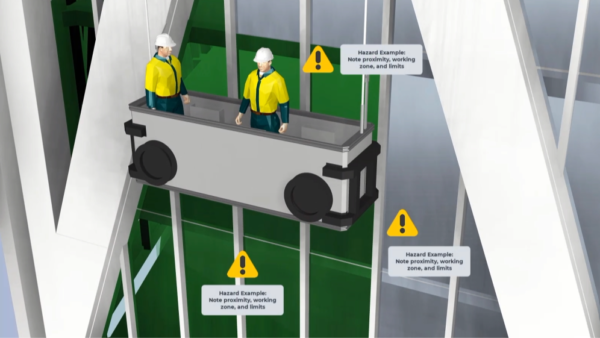
What’s essential in a materials passport and what’s a nice-to-have? The UK Green Building Council (UKGBC) has published two documents to help clients, designers, contractors and manufacturers understand the scope and detail of materials passports.
Materials passports are key to creating a circular economy in the built environment. The UKGBC says: “We need to move to a new way of thinking, working, and delivery – a circular economy must be part of the equation. We must revaluate the way we think about and approach the building cycle by considering everything from design all the way to end-of-life planning.
“In recent years, materials passports have gained prominence in the built environment sector for their use in promoting circularity, climate mitigation, and waste reduction. These ‘passports’ digitally store key information on construction materials and products, supporting the recovery and reuse of these materials over their lifecycle.
“In the built environment sector, these lifecycle documents act as a tool for data and understanding end-of-life options for materials. By digitally logging the trajectory of these components, materials passports are crucial in unlocking circularity and promoting material reuse in the built environment.”
The UKGBC’s information reference guide breaks the scope of a materials passport into four parts, each then analysed in detail. The four parts are: basic information; circular economy information; sustainability information; and product-specific information.
Basic information
The UKGBC lists the unique identifier, physical and technical information, manufacturer information and health and safety information as essential.
It recommends that warranty information, datasheets and product location are included. Images are optional.
The UKGBC recommends that these information types are collected and/or updated at RIBA Stage 4 or 5.
Circular economy information
The UKGBC lists material composition and deconstructability/demountability as essential information.
Information on previous use, the expected lifespan, end-of-life scenario and current condition are recommended.
Sustainability information
Environmental information is essential here. Toxicity and sustainability certifications are recommended.
Product-specific information.
The UKGBC lists certification and testing as essential. Maintenance instructions, maintenance log, technical data and cleaning instructions are recommended.
Don’t miss out on BIM, information management and digital construction news: sign up to receive the BIMplus newsletter.












